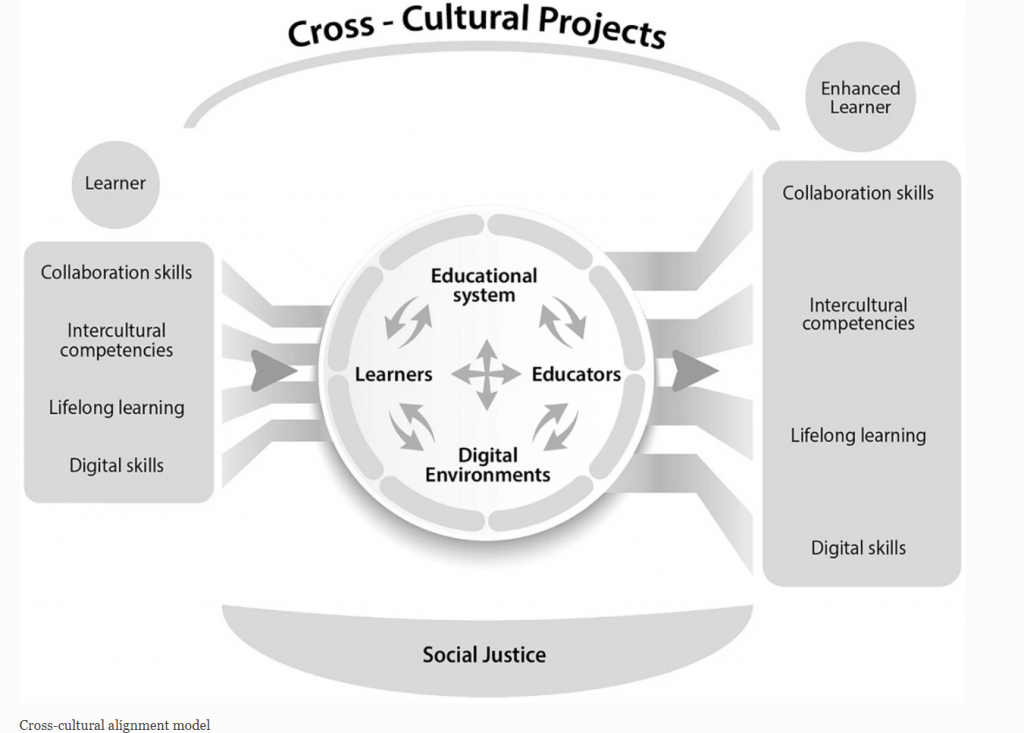The more I look into cross-cultural education in digital environments the more I feel I have a very steep learning curve. In particular the more we dialogue at the confluence of early learning, technology and learning improvement and indigenous Ways of Knowing, I appreciate the importance of a clear vision from the First Nation Community. The vision from the First Nation Community pertaining to cultural permeation must be held with the highest of respect and care. When you introduce digital environments with cultural permeation it becomes apparent that the potential is great at the same time if technology is not used properly it could have substantial adverse consequences.
I have been reading an article “Learning in digital environments: a model for cross cultural alignment. The focus of the article was to respond to emerging questions regarding learners and the learning environment and how it is evolving in a networked society. It points out that a successful learner needs to have foundational components in place to be able to achieve in the present and in the future. Students need competencies in the intercultural and digital domains. While developing collaborative and life long learning skills. I can help to think that a networked society means that students can now connect with not only peers in their classroom but also with people around the world. That really points out the need for intercultural competencies doesn’t it?
For students to be successful professional development is essential for teachers. We need teachers to know how to help students nurture the above mentioned four competencies and skills. Teacher’s need to help address as best as they can the digital inequalities and ethical issues that come up daily in our educational settings. That said the underlying theme for me is that we must encourage our student’s to be engaged and not passive in a digital environment in order to ensure a person’s wellbeing. This research paper by Mirie Shonfeld (2021) indicates that the use of digital tools can contribute more successfully to cross cultural understanding than just face to face meetings. I can not think to ask the question, could that mean that digital environments could be a resource when supporting First Nation culture in our schools?
How do you think technology should be used in supporting cultural permeation within the education system?

Shanfeld, M. (2021). Learning in digital environments: a model for cross-cultural alignment. Education Tech Research Dev.
Great post, Gerry! I think you have highlighted a really important topic that deserves many conversations. I work in a school with very few Indigenous students and staff. We do not have a Elder in our community. I often feel that I need to look for virtual or digital opportunities to incorporate First Nations content and culture into my classroom. I was so thankful when Jeff Capo retweeted the Indigenous Storytelling links from Good Spirit School Division. I loved that this was an option, and I think that just goes to show how valuable resources like that would be. I look forward to following along with your progress!
What an excellent insight, Gerry! It is this very question you pose that keeps me up at night. Jeff and I collaborated on an idea surrounding the similarities between the 9 Elements of Digital Citizenship and The Seven Grandfather Teachings. We have not posted it yet but will this week. Throughout our questions, we continue to question how to engage Indigenous Epistemology authentically along with creating Digital Citizens. We began unwrapping the idea that Digital Citizenship is a Knowledge System. I need to research this some more, however, we found there to be many parallels to discuss and draw are learning from For me, if the content is grounded through Indigenous Epistemology, it is then through these spaces that the Cultural Crossover could occur. I am going to take a look at this article. Thanks for sharing your thoughts. We are on this learning journey together!
I appreciated when you said, “For students to be successful professional development is essential for teachers.” We as teachers often forget the importance of lifelong learning when we are in busy situations and trying to balance multiple plates. Professional development is more than just learning, but it is staying current with what is happening in our profession, and how to incorporate some of the new learning with good pedagogy and practice.